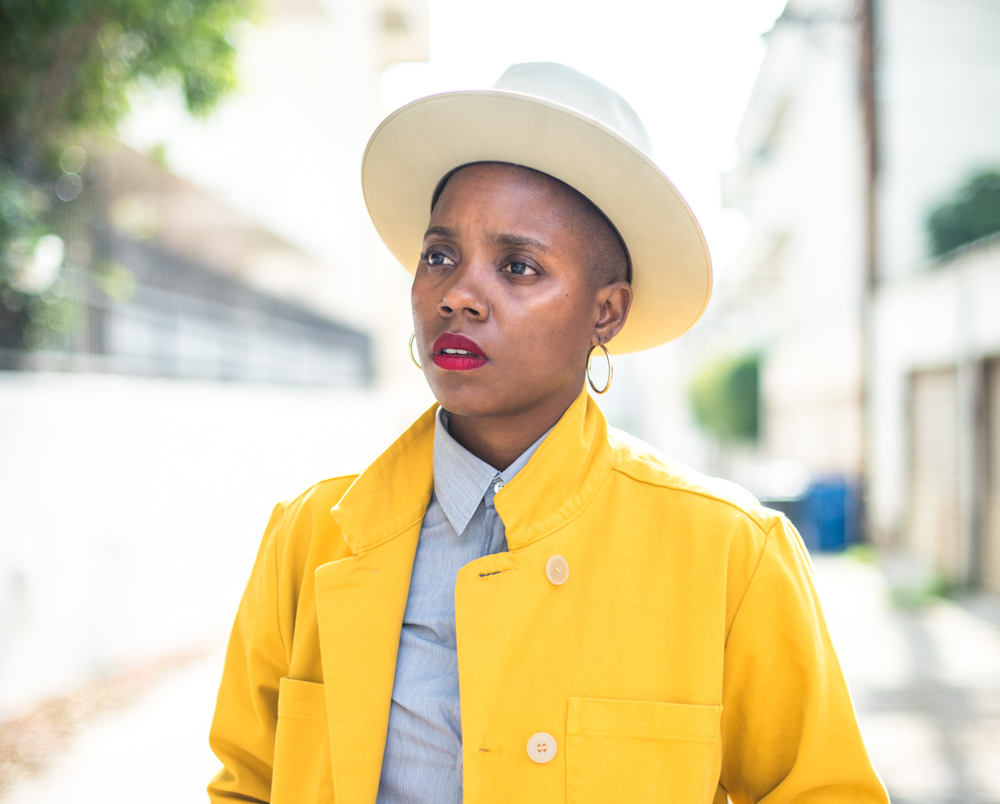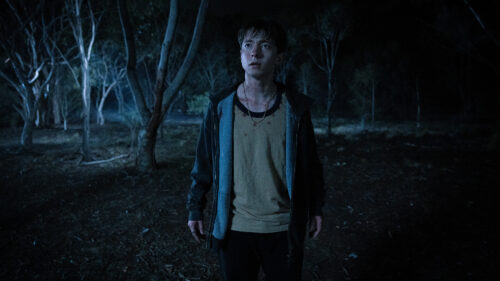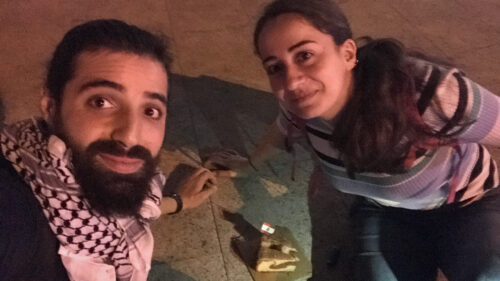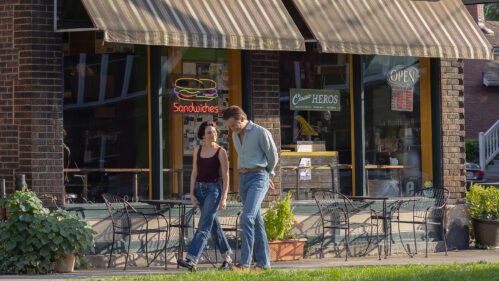Rising director Janicza Bravo tells stories about lonely failures, isolated by the fault of their own anxieties or social shortcomings. Her previous shorts, like “Gregory Go Boom” and “Pauline Alone,” (starring Michael Cera and Gaby Hoffmann, respectively), are the type of compelling snippets into discordant lives that make you want to focus on every word a character says, and chew on every detail by its writer/director.
Her debut feature, “Lemon,” is assuredly a movie from her incredibly exciting directorial vision. It tells of a man who “plateaus” in life, after his acting career fails to materialize, his girlfriend (Judy Greer) dumps him, and a student (Michael Cera) in the acting class that he teaches gets better work. “Lemon” is a lot of things: a dark comedy about failure, a brilliant cultural treatise on the dumb white male comedy trope, and the warming story of Bravo and Gelman’s off-screen relationship, as their marriage is reflected in a relationship that Isaac starts with Cleo, a woman (Nia Long) he meets on a commercial shoot. But as “Lemon” shows in extended sequences the juxtaposing families that Isaac and Cleo come from, and always slingshots back to Isaac’s way of trying to understand the world through his own privilege, the movie is far more than a regular tale of arrested development.
“Lemon” was co-written by Bravo and Gelman, and receives a crucial sense of atmosphere and comedic timing from “Moonlight” editor Joi McMillion (who recently made history as the first black woman to be nominated for an editing Oscar). Warbling clarinets and organs from composer Heather Christian add to the narrative unease as Isaac’s life starts to fall apart, a fascinating display that includes appearances by Shiri Appleby, Megan Mullally, Martin Starr, Fred Melamed, Rhea Perlman, Gillian Jacobs and David Paymer. To further indicate the type of power behind this invigorating project, it’s executive produced by Christine Vachon, who has helped establish the careers of Haynes, Kimberly Peirce and Todd Solondz among numerous others.
“Lemon” continues its festival tour after going from Sundance to being the opening night film for the Rotterdam Film Festival to its SXSW premiere tonight. Bravo spoke with RogerEbert.com about “Lemon,” defying the passive expectations of comedy, commenting on a space that’s very inclusive specifically to white men, and much more.
You started writing the script for “Lemon” when you had your first short, “Eat!” at SXSW in 2011. I was wondering why “Lemon” was the choice for your first feature.
How it came to be is sort of funny and wonderful, in that I went to SXSW for the first time with my first short, and it was a lot of firsts for me that festival. I was there with Brett who is Isaac who is my now-husband who was my then-boyfriend. And after our film had screened in the shorts block I was hanging out with these two women and we were having this gay old time dancing. And I should say, before the festival my best friend who is a filmmaker told me, “Say yes to everything. Don’t be you and say no. Just say yes always.” And I was with these women and they were wonderful and they really liked the short and were curious about what I was working on next. I made shit up about what I was working on. And then as they were leaving it was 1:30 in the morning, they both come to me and hand me this business card and I don’t look at it but we’re talking and they say “We’re looking at scripts and reading scripts for the lab,” and they asked if I had a feature. Of which I said yes, of which I did not. I looked down at the card and they were two women who worked for Sundance Lab, and I was like, “Oh, that’s really not good.”
And we spent five days that we were going to see films at the festival writing this movie, and we wrote the first draft of “Lemon” there. Then we spent another year actually crafting the script, but it was born there out of that fib. And for me I was wanting to comment on this space of work, where there seemed to be this really large body of certain filmmaking that was coming out of comedy and there’s not a ton of women directors in comedies or at all. I was commenting on the space that seemed to be very inclusive to men, white men, and I was inviting myself into this space on an archaeological dig. Like, this is how I see this and this is my curiosity and my dissection of this world.
One facet that really struck me about “Lemon” is that it really draws your attention to how much Isaac’s construction as a dumb, white male directly factors into any interaction he has, or his general place in the world.
[Laughs] Yes, that is correct. But it’s very much a comment on one individual, and it’s a comment on maybe a small group of individuals, it’s not an entire group of people or a race. And it’s really an individual at his his most extreme. There are perhaps shades of Isaac in all of us, even myself.
For me, it’s about how not to be an ally. Which is something touched upon by another white character in the “Atlanta” episode you directed (“Juneteenth”) as well, where it’s an anti-wokeness.
Yes, I am cornering the market for myself. I think I am really good at white people who mean well but don’t have the tools. I think that’s my space that I am crafting. The non-socialized white people might be my area of art [laughs].
I’ve heard you describe him as childlike, and that comes with Isaac not getting everything that he wants.
We screened in Rotterdam, and there was this fella at one of our screenings who said this two-pronged thing. He first said, “I thought this was a comedy, why was there nothing sweet about this movie?” And then the second thing he asked was, why Brett and I were attracted to somebody so bad. And to me, while they are different questions they felt similar. My answer to that is that I didn’t process it in that way. We wondered if we were doing this film a disservice by calling it a comedy. People refer to characters like this as unlikable, which I don’t think about or process him in that way. But I think in dramas, for whatever reason there’s more permission for characters who are like [Isaac], who are deeply flawed but we’re still sort of rooting for. And in comedy, I think the audience is signing up for a certain type of pleasure. And so if you’re not delivering on that pleasure, then you haven’t shown up for your end of the bargain, right?
He says mostly what is exactly on his mind, which is what children do, and when you’re a child there’s not really consequences. I think when you’re younger there are more chances to be imperfect, and I think he’s at that moment into his 40s in which it’s just less sexy. Being a failure in that way is just less sexy, once you show up to adulthood or manhood, right? People start to get turned off by it.

Were you thinking about other man-child stories or characters when creating Isaac?
People write extensions of themselves, right? And so for me, for both of us, we were commenting on this space of the 30 and 40 year old guy who doesn’t have a job, who has an incredible partner who he doesn’t deserve who should just leave but he’s still there but is there to just service his existence, and then the family who is supportive. These guys who things for some reason seem to work out for in the end, and I wondered … I think for me as a person of color, when I was watching work like this, I felt like a black character could not exist in this space without judgment. There would be nothing redeeming about a black character that existed like this. And it’s curious to me that you could watch so many white characters in this kind of environment and then ultimately it would be fine and there would be something sort of likable about this guy. And there isn’t a lot of work about plateaus, and I think for many of us, at least in my artist journey, that’s a big part of my past.
While I don’t look like the protagonist, the things he’s feeling are very much my feelings. They’re a manifestation of Brett’s and my feelings of anxiety or not belonging and being left out, or feeling like everyone is passing you by. All of that. It’s sort of the black-girl-meets-white-guy space, I guess [laughs]. How do I add myself to this territory?
There’s also the element that this is a love story, when Nia Long’s Cleo comes into the picture.
Yeah, I mean, that’s me.
That’s your story, right?
Yeah, in a way how they meet in the film is like how Brett and I met. He was working on a commercial, he was the face of the New York lotto and was this Jewish minstrel character, which was super upsetting, and I was the stylist on that. And so [Isaac’s job on a] Hepatitis C campaign [in “Lemon”] is a reference to how we came together. But the seder [Isaac’s family] and the BBQ [Cleo’s family] … you know the scene in “Annie Hall” where it’s Diane Keaton’s family and they’re like very WASP-y and it’s the side-by-side with Woody Allen’s dinner? That was for me that was like my family versus Brett’s family. My family is very colorful and loud, but no one is really listening and everyone’s talking at the same time and it’s like a big party all of the time, but people are really dealing with feeling. And his family is like a lot of feelings and everyone is talking at the same time and it could her a little more edited [laughs]. And that was the palette of it, the yellows, Caribbean colors and blues, and then his family is like a little bit less saturated.
And with that family juxtaposition, you can see African art throughout Isaac’s parents’ house. There’s an element of some appropriation.
Oh, no question. I mean they’ve traveled and they mean well, but they don’t have all of the language of what’s acceptable. And one of my favorite scenes, that I think is a rather, how do I put it, I feel really encapsulates one of the intentions of the film, or one of the conversations I really wanted to be having is at this seder. There is Martin Starr and Shiri Appleby having this fight about who gets to ask the Four Questions, like the degree of Jewishness. Really it’s like this question of, does the youngest who is black get to read the Four Questions, is that appropriate? And Shiri is there with a black adopted son, and then in the same beat without a break shouts a command at her Latin-American maid/nanny. To me, that moment is like, people are really complicated. Allies can be very complicated, and it’s this thing of who really has a seat at the table? If you look around and everyone looks the same but your intentions are that ultimately people are invited, I think it’s this tiny moment about race and tension and language. And I think for me, it’s sort of like, race is unavoidable, I live on this planet as me, and I’m a woman of color and it’s always a part of the conversation for me and it’s something that’s always on my mind. Even if it’s not the loudest note, it doesn’t seem to be about race it is obviously there for me.

One of my biggest laughs during “Lemon” is when Isaac writes a horrific racial slur on the side of the car belonging to Michael Cera’s character.
When we were working on that particular scene, the cinematographer said, “I just think that this shouldn’t be in there.” I said, “Thank you for your opinion, I super appreciate it.” He’s like, “It’s so ugly and it’s so harsh, when I read that I kind of put the script down,” and I said, “Exactly.” I feel like it’s one of the moments that makes me the most uncomfortable in terms of watching a movie with the audience. It’s like, “This is when we lose them.” [Laughs] It gives me genuine anxiety watching an audience watch it, I still want them to be on my side or our side, and it’s like this moment where I know we could potentially have gone a hair too far. But the point was for me, that I do think that it’s the ugliest and most criminal language, of what exists in the English language. And it was suggested like, “What about a giant dick and balls?” we’re like, “It’s not the same.” I want it to be a deep cut, and I think that that’s a deep cut.
And within this movie, it has a strange, huge comedy. It’s a very complicated moment … do you find people laughing at it, or am I crazy?
No, I think people should laugh at that, it’s ridiculous! It’s similar to the seder, it’s so upsetting and so horrible and so insane, and for a moment maybe you’re taken out of the movie because you’re like, “Michael Cera is getting into a car that has those words written on it,” and it’s like, “Why is this happening to me?” I used to direct theater and my work was absurd and absurdism is obviously something I’m interested in. I think “Lemon” has a lot of big notes that are, it’s like too many notes, right? If it were classical music it would just be like one of those Stravinsky pieces where it’s like, fun but also very stressful. And that’s kind of the space I’m interested in.
Like a lot of the humor in the film, it’s walking an interesting line, in not wanting to lose people entirely but wanting to challenge them and welcoming the cringe. It seems like a very precise craft.
I think that, when theater really worked for me is when I have not wanted to be there and wanted to be there. And being really bothered, excited, really moved. There’s this thing that happened when you see an incredible play and it really stays with you, and you really also feel put to work, you have to work to be a part of it. I find that in comedy in particular there is a passivity. I think in my normal life I am running away from bad feelings and anxiety, and I have the option to sort of like, not watch the news today, close the computer, plug my ears. And I guess in the experience of the work that I’m watching and the work that I’m making, it’s just an exorcism of all those bad, funny strange feelings.
How did you pitch “Lemon” to Nia Long? How did you get her involved?
It was really important for me that we cast an American black actress, and I say that because there are a lot of sexy English stars that play these parts, and I really wanted someone American. And while I am not American per say, I wanted this person to be American. And Brett championed this and he said, “It would be really great if we were able to get a black actress who had a body of work that was mostly black movies,” that people would be like, “What are they doing in this movie? This is not their scene.” You know? Like, Michael Cera, Judy Greer, Nia Long. How did she get there?
And we sent the script to her agent and I had told one of the producers, “When you send it, tell her that I’m black.” And he was like, “What?” He’s white, and he didn’t know how to say it. And I’m like, “Just tell them I’m black.” And he’s like, “I can’t.” “No, you have to tell her that I’m black and I’m a woman, and she’ll meet. I know that she will.” We met up and she was like, “You’re strange and I’m really fascinated by you and you’re so curious” and she did research on me, and she’s like, “You’re from Latin America but you’re a black lady and you’re Caribbean” and her family is Caribbean, and so we spent four hours at our first meeting talking about lots of things, it was pretty instant for us and there was not a great deal of convincing that I had to do. She loved the world and loved that Brett and I were an item and were making this real strange this movie, and she liked the mention to “Good Hair,” which she was a part of.
And one of the pieces that was exciting to her was that she said, “I don’t get asked to do movies like this.” She was like, “This is like a white movie. I am not a black woman that is invited to movies like this, and that a black woman is making this my brain is kind of exploding. I want to be a part of this.” And that was exciting to us, that she was going to go and make another one of those “Best Man” movies. And it’s also—I feel to my fellow filmmakers most of the people that I know working in the space that I am working in which I guess is best called “dark comedy”—I think that we could make our work be a little less one palette, and I mean not just white people [laughs]. Look to inclusivity, where we talk about this world that is inclusive but we’re not making work that’s actually inclusive in front of and behind the camera. and that feels very necessary right now. It has been necessary for quite some time but right now it feels like a really important thing.
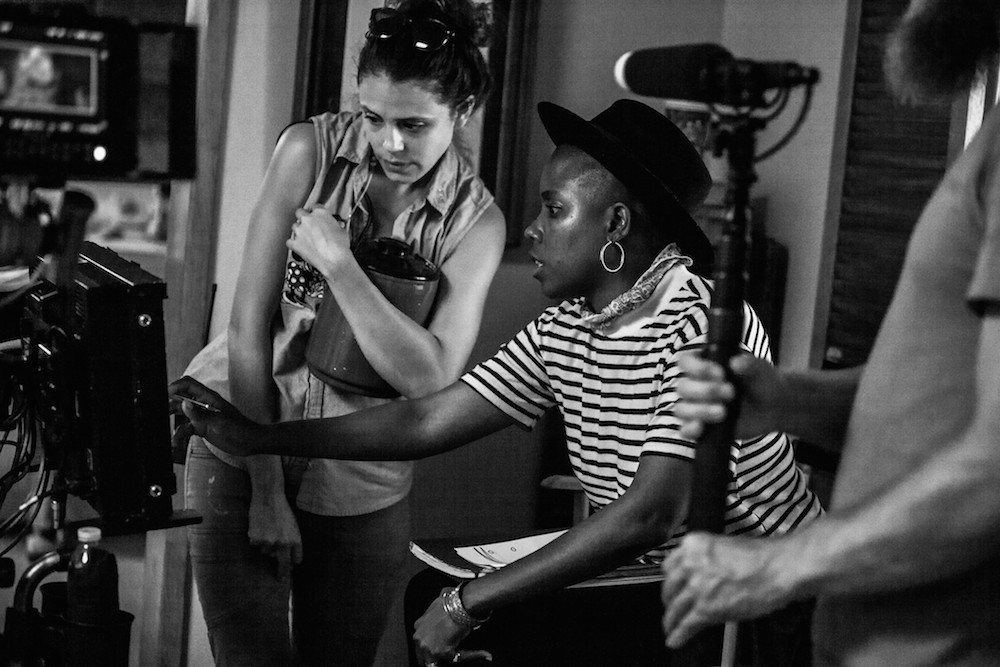
There’s also a great scene in “Lemon” featuring Megan Mullally, who plays a hammy fashion photographer.
Yeah, I was a stylist and I used to work in fashion. The movie is not [Brett and I], but it is very much is a lot of these beats of our lives intertwined and a little bit of our past life, current life and maybe future life [laughs]. We took certain traumas and joys from our life and put them in the movie, and it’s very much a marriage of our relationship and our families and the things we love and don’t love about ourselves.
Was Paul Thomas Anderson’s “Punch Drunk Love” at all an influence on “Lemon”? The two films share distinct camera pans, Los Angeles, even aggressive, non-socialized men in suits.
It was and it wasn’t. I watched it, and we shot anamorphic and I watched it and tonally it’s in the same vein. It’s funny, I always expected more people to do like a comparison to that and to “Greenberg,” and no one did and I was like, “Oh, thank God.” You also want to be an individual, right?
But the biggest cinematic references were John Cassavetes’ “Minnie & Moskowitz” and Hal Ashby’s “The Landlord.” Tonally, those were the two pieces we were most drawing from, in the way that “Minnie & Moskowitz” kind of builds comedy that’s super upsetting and stressful, about two wackos, and I mean that with great love. And then “The Landlord” is like this white person that invites himself into this black space and he’s not totally socialized, and he’s coming into his own of understanding race and racial dynamics and trying to sort of articulate what that is, the thing that he’s seeing, but maybe a lack off awareness of his own privilege. And actually the closing scene of “The Landlord” was a big inspiration for me. Without giving anything away from that movie, Beau Bridges has had sexual relations with this black woman and she gives birth to this child and they’re going to put the child up for adoption. And when it comes to what race to identify the challenge on the form, Beau asks why wouldn’t they say the child is black? And she says, “Because I want him to grow up casual.” And that sentence is something that I think about all of the time, this idea that when you’re embodying whiteness or blackness, this idea of casualness comes with whiteness that blackness just doesn’t have the privilege of. That to me is the biggest note of “Lemon,” that Isaac embodies casualness in a way that I, Janicza, will never know. But I am sort of navigating what casualness feels like in his body.
This interview has been condensed and edited for clarity.

